The majority of the wetlands are located behind a fence and only a bit of the larger ponds are visible from the road that you can walk along. Here you can see some ducks, cormorants and waders. One of the birds that are regulars are American White Pelicans, there was a group of a dozen or so there even in Summer.
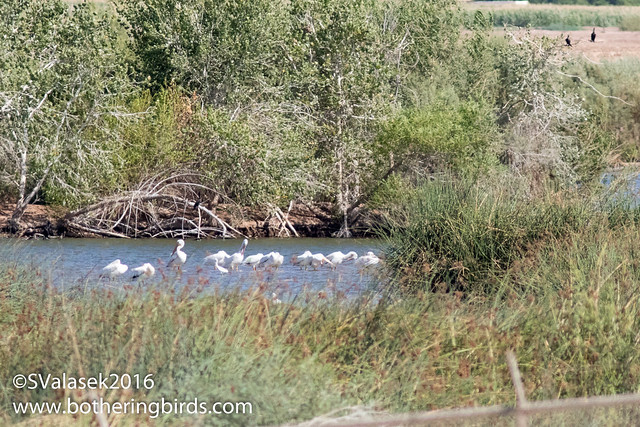 |
| American White Pelicans - Tres Rios Wetlands, Phoenix, Arizona |
I noticed a large bird sitting in a far off tree. By the time I got a closer for a look it had flown, but I managed to see that it was an Osprey.
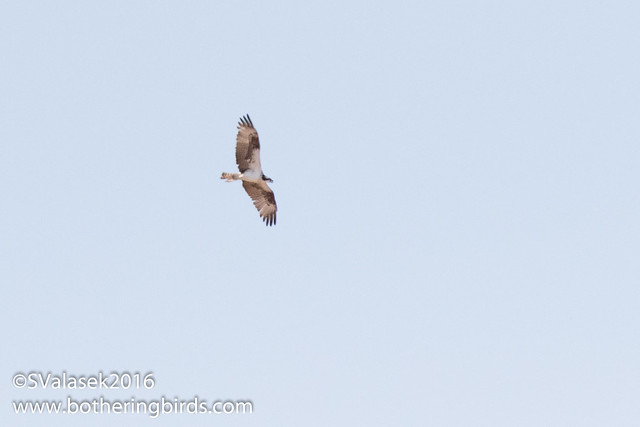 |
| Osprey - Tres Rios Wetlands, Phoenix, Arizona |
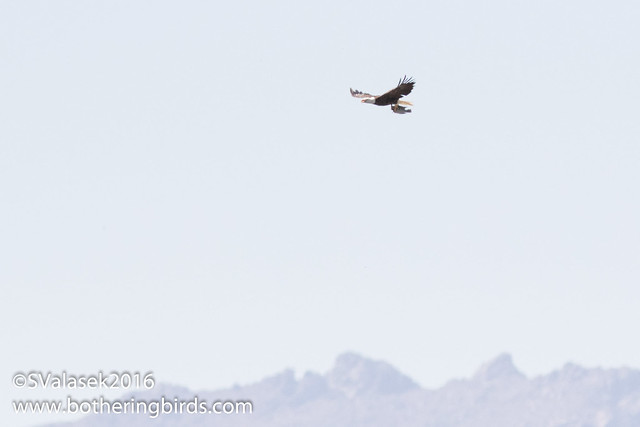 |
| Bald Eagle - Tres Rios Wetlands, Phoenix, Arizona |
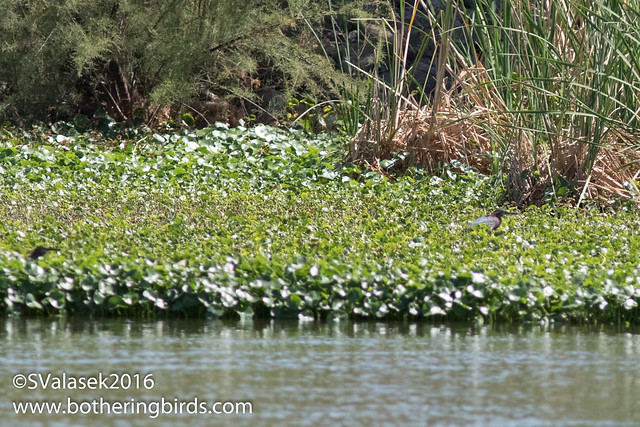 |
| Green Herons - Tres Rios Wetlands, Phoenix, Arizona |
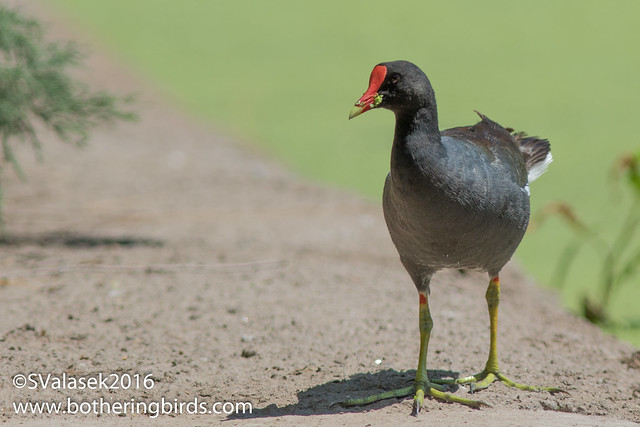 |
| Common Gallinule - Tres Rios Wetlands, Phoenix, Arizona |
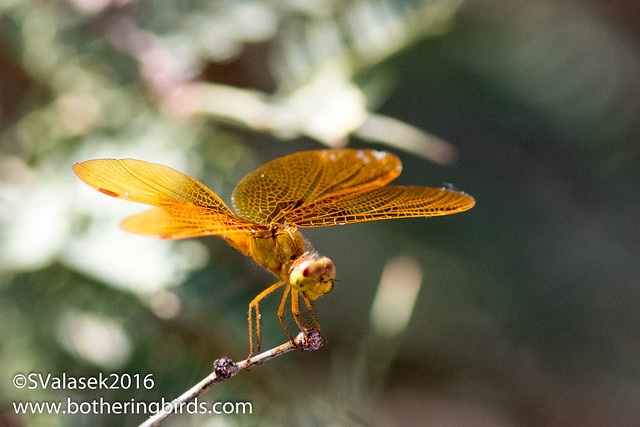 |
| Amberwing Dragonfly - Tres Rios Wetlands, Phoenix Arizona |
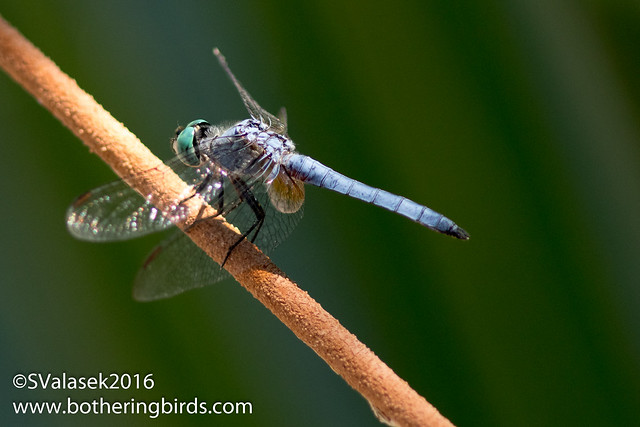 |
| Blue Dasher Dragonfly - Tres Rios Wetlands, Phoenix, Arizona |
I also got some close looks at some Black-Tailed Gnatcatchers (I initially ID'd these at BGGN due to their eye-rings and non-black tails. But the white eye-stripe is better for female BTGN - Steve), which I thought were Verdin when I first saw them. The one I saw looked a bit worn and ready for some new feathers.
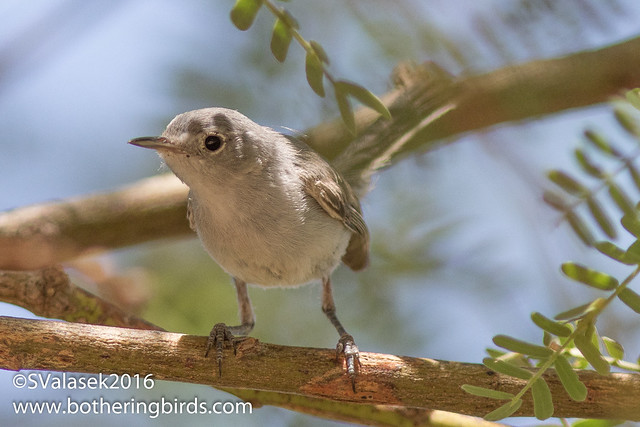 |
| Black-Tailed Gnatcatcher - Tres Rios Wetlands, Phoenix, Arizona |
At this point I was running low on water and pretty sure that I was too late to hear any Cuckoos, so I headed back to the car. I made it back to the large pond at the end of the fence and took a short break there. I was looking for the Green Herons, and hoping for a Sora or Rail, when I saw a lone Ibis foraging. I had seen a flock fly into the big lakes inside of the fence on my walk out. The common Ibis for Arizona and the west are White-Faced Ibis, which I assumed this one was. But as I was observing through my binoculars I didn't notice any pale areas on the face. And I noticed lots of green highlights on the feathers without any of the rusty colors from a WFIB. It was a Glossy Ibis! I have been looking for one in the western USA for years.
I didn't have my scope with me, I don't carry that and my camera usually, so I took some time watching it and taking as many photos as I could. The bird was far off, but I managed some good shots.
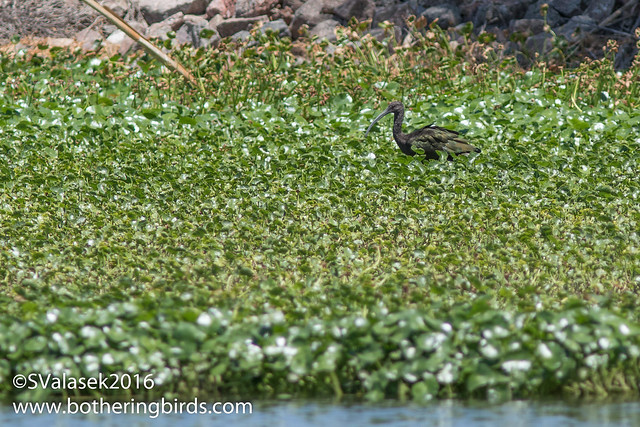 |
| Glossy Ibis - Tres Rios Wetlands, Phoenix, Arizona |
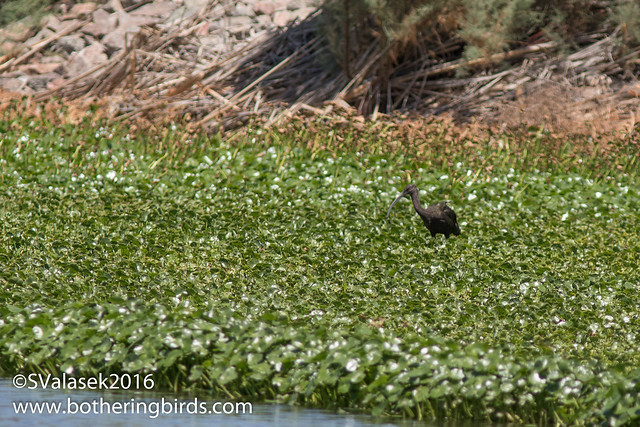 |
| Glossy Ibis - Tres Rios Wetlands, Phoenix, Arizona |
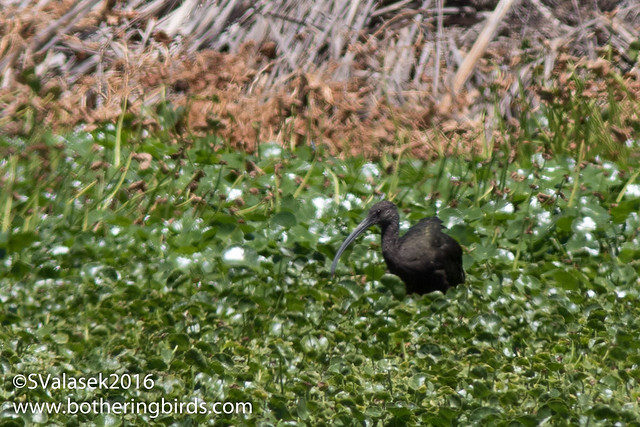 |
| Glossy Ibis - Tres Rios Wetlands, Phoenix, Arizona |
I didn't see pale skin anywhere. And a White-Faced Ibis would have a red iris on the eye, no matter the age. This bird was black with no signs of red tint. I adjusted the crop and shadows in Lightroom to show the face as best I could.
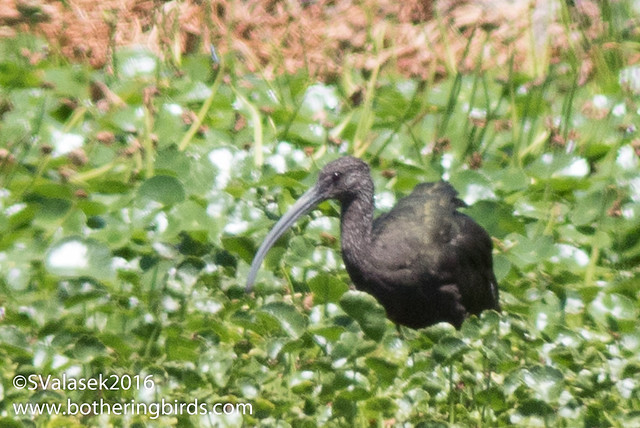 |
| Glossy Ibis - Tres Rios Wetlands, Phoenix Arizona |
What to know:
The wetlands are located 20 minutes west of Phoenix. Take the 91st Ave exit from I-10 and go south towards the Salt River. The parking area is on the west (right) side of the road before a closed gate and a sign. Please do not block the gate.
Tres Rios Overbank Wetlands are a private area and a permit is required to visit, simply send an email and you should get a response in a day or 2. You can find where to get on here. The majority of the water is off-limits behind a fence, but views can be made from service roads nearby.
A list of the birds that you can expect to see can be found at the eBird hotspot page and at the wonderful Hotspot Birding.
Thanks for making it this far,
Cheers


Terrific find and shots, you could not have got better if standing right beside it.
ReplyDeleteWhy is that not a Bell's vireo?
ReplyDeleteLong tail and small size makes it a Gnatcatcher. Sometimes it just tough figuring out which one.
Delete